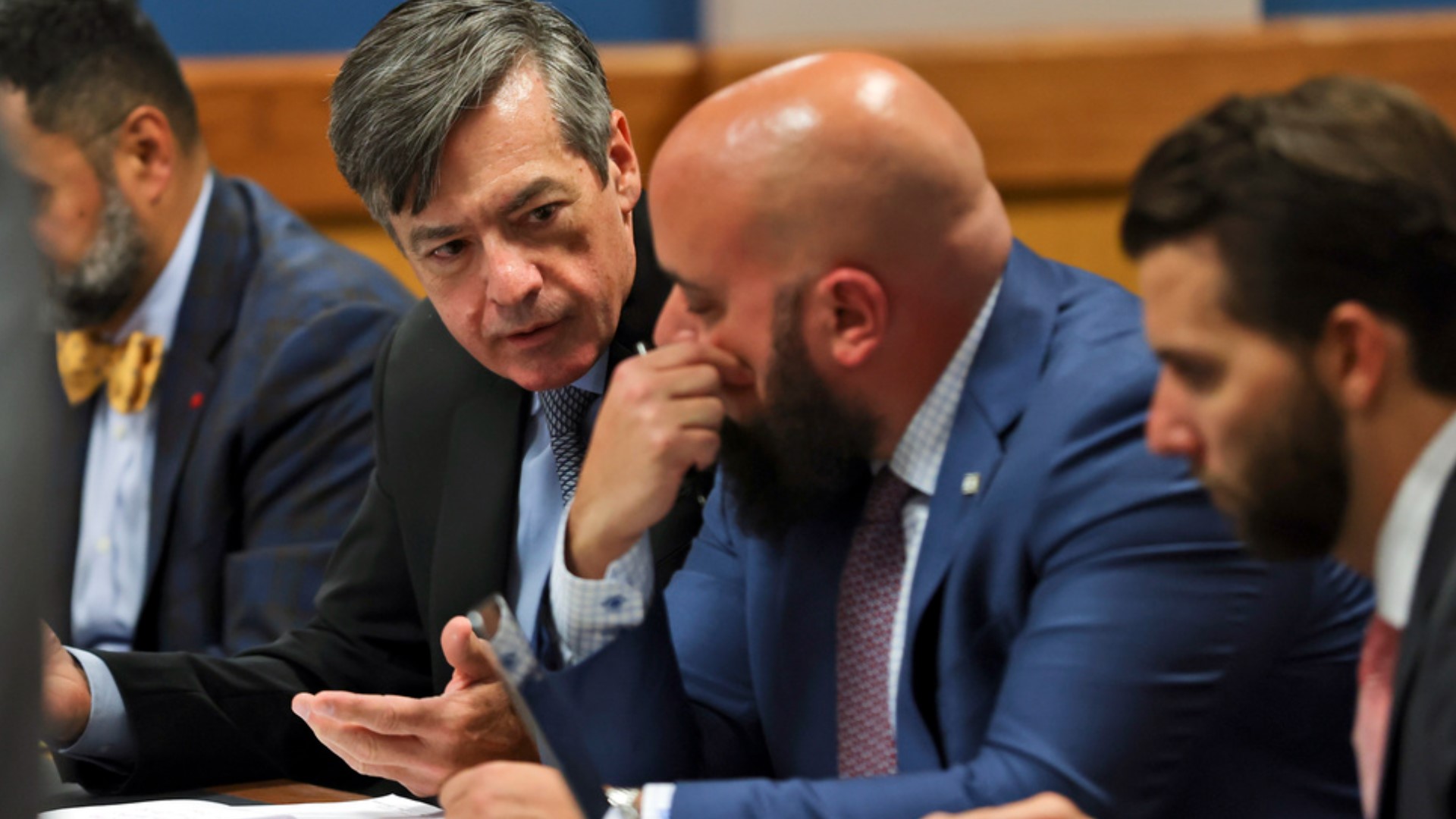ATLANTA — Attorney Kenneth Chesebro, one of 18 co-defendants alongside former President Donald Trump in the 2020 election Georgia RICO case, pleaded guilty and took a deal just as jury selection was getting underway Friday morning.
He pleaded guilty to a single felony count of conspiracy to commit filing false documents.
Negotiated terms include five years probation, $5,000 restitution, 100 hours of community service and an apology letter appear to be the terms of the negotiated guilty plea. Chesebro will fall under Georgia first offender provisions.
The plea deal came after Chesebro had rejected a deal as recently as Thursday, according to NBC News reporting. Jury selection had begun just a couple hours prior Friday morning before Chesebro came into court and the deal was processed into the record.
Chesebro's attorney, Scott Grubman, framed the plea deal as a win for Chesebro that will allow him to "go back to his family now and he gets his life back."
"This plea deal absolutely shows, and proves, that he was not and never was the architect of any sort of fake elector plan, anything like that," Grubman said. He noted that the agreement included the record showing Chesebro's crime is not one of "moral turpitude" - an important stipulation that could allow him to return to practicing law.
Grubman added that Chesebro had agreed as part of the deal to testify in future 2020 election proceedings if he's called to testify, but that it "doesn't mean they're gonna call him... and quite frankly I would be somewhat surprised if they did call him."
Chesebro worked with Georgia Republicans in the weeks after the November 2020 election and is alleged to have had a role in the coordination and execution of a plan to have 16 Georgia Republicans submit an illegitimate slate of Electoral College votes for Trump.
The "alternate" electors in that episode have maintained they did nothing wrong, submitting the electoral slate as a legitimate contingency in the event any of the lawsuits filed on behalf of the Trump campaign in Georgia at that time were successful in halting or overturning the state's election result.
Chesebro's guilty plea came after another co-defendant - attorney Sidney Powell, author of the infamous "Kraken" lawsuits - agreed to plead guilty and submitted that plea Thursday in court.


Powell's deal saw her plead guilty to six misdemeanor counts of conspiracy to commit intentional interference with performance of election duties. She is to pay a $6,000 fine and have six years of probation, as well as testify for the prosecution. The deal will also see Powell pay $2,700 in restitution to the state of Georgia and write an apology letter to Georgia's citizens.
RELATED: Lawyers and judge hash out juror questions for Powell and Chesebro trial in Georgia election case
Emory Law School Professor Kay Levine said in Atlanta Friday that, in many respects, Chesebro and Powell were key players, helping Trump try to overturn his loss—illegally, as they admitted in court.
“I would say this shows there is significant momentum in favor of the prosecution,” Levine said, because of the potential, first-hand, insider knowledge they would have implicating Trump and other co-defendants.
“Chesebro and certainly Powell were, at least, at some points in the room where it happened,” Levine said. “I think that they were probably privy to conversations and emails among the more high-target, high-profile-targeted defendants.... that could be very damaging to the former president, (Rudolph) Giuliani, (John) Eastman and some of the others.”
Chesebro and Powell and a third person who pleaded guilty last month, Atlanta-area bail bondsman Scott Hall, are more valuable to the prosecution as witnesses, Levine said, than as defendants.
“In any large-scale case like this, there's always a ‘trading-in the little fish for the big fish’ sort of pattern,” she said. “I would be surprised if these are the only three who are in negotiations with the DA's office and who ultimately decide to take the deal.”
It's unclear when the other 16 co-defendants, including Trump, might face a trial--those who decide not to change their pleas of Not Guilty, that is. There are numerous legal procedures to clear before reaching that point, absent the speedy trial demand made by Chesebro and Powell, including the complication of next year's presidential election.

